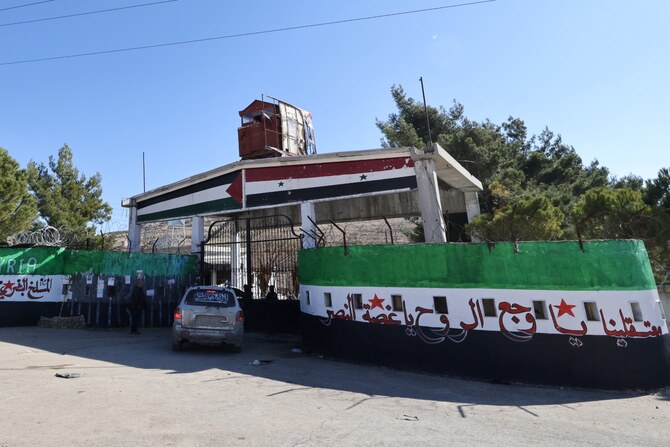CHICAGO: American officials are cautiously optimistic about the chances of establishing a durable peace process in Yemen but remain concerned about Iran’s role in fueling the violence in the country, despite its recent agreement to restore diplomatic relations with Saudi Arabia.
Tim Lenderking, the US special envoy for Yemen, said Washington remains “unwavering” in its commitment to peace in Yemen. He pointed out that America is the biggest donor of humanitarian aid to the country, having contributed more than $5.4 billion to help the Yemeni people.
But he said that while he is hopeful the rapprochement between Saudi Arabia and Iran could have a positive effect on efforts to restore a lasting peace in Yemen, Tehran will have to do more to make up for its years of involvement in the country that fueled the violence.
“I remain concerned, despite the fact that we welcome the agreement between the Saudis and the Iranians,” Lenderking said during a press briefing on Thursday.
“I remain concerned about Iran’s role, which is to say that over the top period of the war they have armed, trained and equipped the Houthis to fight and attack Saudi Arabia.
“We are (feeling) very positive (because) these attacks have not taken place in over a year. But the Iranians have continued to smuggle weaponry and narcotics toward the conflict and we are concerned that this would continue despite the benefits that could come from a Saudi-Iran deal.”
Lenderking said US President Joseph Biden’s administration “is confident the region is moving in the right direction” but wants to see more signs of progress from the Iranians.
“We did welcome this (Saudi-Iranian) agreement, and anything that deescalates regional tensions is something the US supports,” he added.
“If, as the Saudis and Iranians go forward and their mutual expectations are met vis-a-vis security and a political process in Yemen, then we will see that this agreement is actually benefiting Yemen’s peace.
“But we should also be clear there was a lot of work done over the last couple of years that did not involve the Saudi-Iranian agreement … that brought us to this current more positive space.”
Lenderking said he does not believe the agreement between Riyadh and Tehran guarantees peace because although the Houthis receive support from Iran, they make many of their own decisions.
“It is also important to stress that the Saudi-Iran agreement alone will not bring peace to Yemen,” he said. “The Houthis do not just take Iranian direction on peace efforts. The Yemen conflict is about more than just Saudi Arabia and Iran; there are internal tensions and divisions in the society that have helped fuel this conflict, that don’t really have anything to do with Saudi Arabia and Iran.
“So I think (the agreement) can be helpful to this effort, and indeed many people are sharing with us that in their conversations with Iran, Iran is supportive of a political process in Yemen. We want to see that borne out in fact and we do not want to see the continuation of the smuggling and the violations of UN Security Council resolutions which characterize the previous seven years of Iran’s engagement on Yemen.”
The US is willing to support the agreement between Riyadh and Tehran, in the hope that it leads to tangible results that bring peace to Yemen and the wider region, Lenderking said.
“Time will tell whether the Iranians will hold to the terms they agreed (and) whether we will see an end to the smuggling of weapons, weapons parts and narcotics to the Yemen theater,” he added.
“I know that is a concern for Saudi Arabia. It is a concern for the United States and, indeed, it should be a concern for any members of the international community that hold true to the viability of the UN Security Council resolutions which prohibit such activity.
“My hope, our hope, is that Iran will change behavior and, indeed, in the spirit of the agreement with the Saudis, support the peace effort vigorously in Yemen. That would be welcomed.”
Meanwhile, Lenderking said that the US is playing a leading role in the UN operation to safely transfer more than 1.1 million barrels of oil from the Safer, an oil tanker moored off the coast of Yemen that has had little or no maintenance since 2015. As a result, its condition has deteriorated to the point where there are growing fears that an explosion or leak could result in a spill four times worse than the 1989 Exxon Valdez disaster in Alaska, and cause an environmental catastrophe in the Red Sea.
After long negotiations with the Houthis over access to the vessel, the UN in March purchased a vessel to hold the oil and the salvage operation is about to begin.
Lenderking also said the US has no immediate plans to reestablish its embassy in Sanaa and will not do so until the Houthis stop arresting and detaining civilians, including embassy employees.
“We don’t have any plans to open our embassy in Sanaa at this moment,” he said. “Yes, we want to go back there and establish our diplomatic mission but some of the behavior the Houthis have demonstrated towards our local staff is very discouraging: The fact that they have detained 11 of our local staff over the course of the last year-and-a-half, and only recently allowed phone calls, even for these families.
“These are Yemeni citizens, they are not even American citizens. We care about them, they work for us, they have been very loyal employees. They are not spies. They have not done anything wrong. They should be released immediately and unconditionally to their families. They should not be held in this manner, incommunicado.
“We need to be confident the war is over.”






















